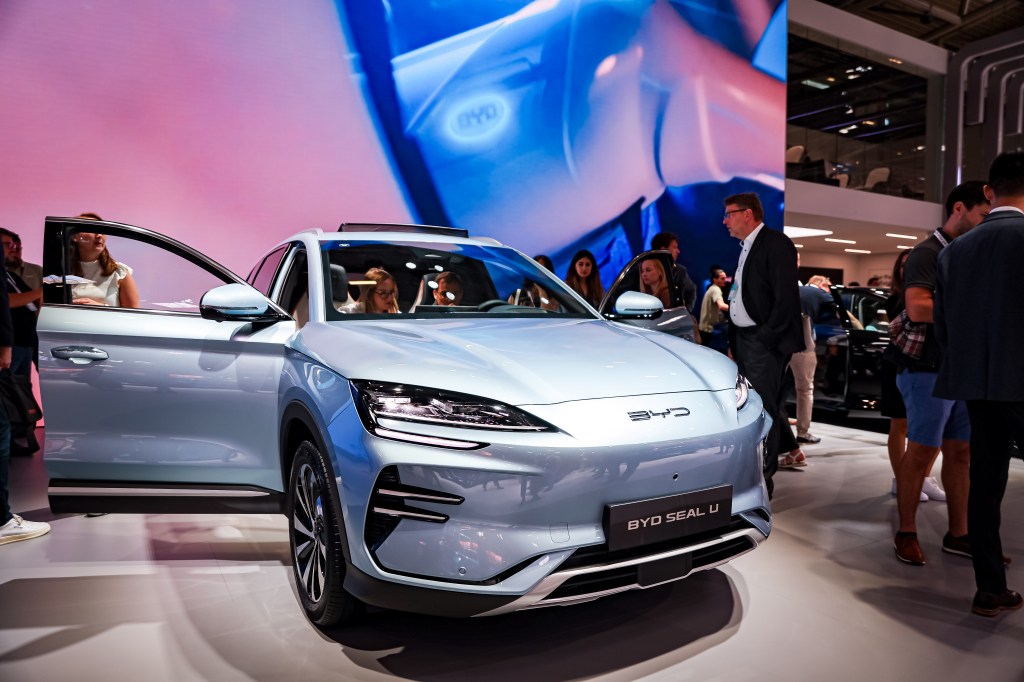Citing potential national security risks, the Biden administration says it will investigate Chinese-made “smart cars” that have the ability to gather sensitive information about the American consumers driving them.
This probe could lead to new regulations aimed at preventing China from using sophisticated technology in so-called “connected cars,” vehicles with increasingly sophisticated technology electric vehicles that track drivers and collect their personal information. Officials are concerned that features such as geographic trackers and other driver-assistance technology could be used to spy on Americans.
“These autos are constantly connecting with personal devices, other cars, US infrastructure, and their original manufacturer,” the White House noted in its Fact Sheet about the investigation.
The action stops short of a ban on Chinese imports, but President Biden said he is prepared to take “unprecedented steps to safeguard Americans’ data”.
National security risks
The Department of Commerce is issuing an Advanced Notice of Proposed Rulemaking to investigate the national security risks posed by these connected vehicles when they originate from countries of concern.
As part of the investigation, the Fact Sheet says, Commerce will gather information from the industry and the public on the nature of these risks, and potential steps that could be taken to mitigate them. “Commerce intends to use this information to help inform and scope potential regulations to govern the use of technology in vehicles from certain countries,” it says.
This is the first action taken by Commerce’s Bureau of Industry and Security under executive orders focused on protecting domestic information and communications technology and services supply chains from national security threats.
“Imagine if there were thousands or hundreds of thousands of Chinese-connected vehicles on American roads that could be immediately and simultaneously disabled by somebody in Beijing.”
Gina Raimondo, Commerce Secretary
Commerce Secretary Gina Raimondo said connected cars “are like smartphones on wheels” and pose a serious national security risk.
“These vehicles are connected to the internet. They collect huge amounts of sensitive data on the drivers – personal information, biometric information, where the car goes,” she told reporters. “So it doesn’t take a lot of imagination to figure out how a foreign adversary like China, with access to this sort of information at scale, could pose a serious risk to our national security and the privacy of US citizens.”
Data collection is not the only concern, she said, noting that connected vehicles could also be remotely enabled or manipulated by bad actors.
“Imagine if there were thousands or hundreds of thousands of Chinese-connected vehicles on American roads that could be immediately and simultaneously disabled by somebody in Beijing,” Raimondo said. “So it’s scary to contemplate the cyber risks, espionage risks that these pose.”
Collaboration
Commerce will seek information from the auto industry and the public on the nature of the risks and potential steps to mitigate them, the White House said. Officials will then develop potential regulations to govern the use of technology in vehicles from China and other “countries of concern,” such as Russia and Iran.
“We’re doing it now, before Chinese manufactured vehicles become widespread in the United States and potentially threaten our privacy and our national security,” Raimondo said.
Behind the scenes
BYD Auto Co, Ltd has been getting a lot of attention because it recently became the dominant EV auto maker. It is the automotive subsidiary of BYD Company, a publicly listed Chinese multinational manufacturing company. It manufactures passenger battery electric vehicles and plug-in hybrid electric vehicles, collectively referred to as new energy vehicles in China.
This all comes against a background of President Biden facing a potential election re-match with Donald Trump, who used his office’s authority when president to unilaterally slap import duties on foreign steel under the banner of national security. Trump was particularly tough on China.

















